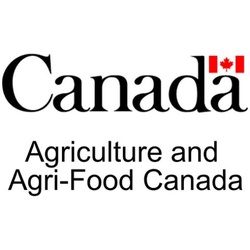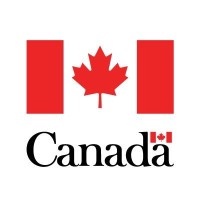
Open
Temporary Foreign Worker Program (TFW) — Express Entry
Last Update: October 27, 2025
Canada
Hire skilled foreign workers immigrating to Canada
Other Support
At a glance
Funding available
Financing goals
Develop employee skills
Improve employee retention
Eligible Funding
- No Condition
Timeline
- Unspecified
Eligible candidates
Eligible Industries
- Construction
- Manufacturing
- Health care and social assistance
Location
- Canada
Legal structures
- Non-profit
- Public or Parapublic institution
- For-profit business
- Sole proprietorship
Annual revenue
- All revenue ranges
Organisation size
- All organization sizes
Audience
- Newcomers to Canada
Non-profit candidates
Sector of operation
- Hospitals and Rehabilitation
- Nursing Homes
- Other Health Services
- Economic, Social and Community Development
- Housing
- Employment and Training
Target groups
- Children & youth
- New immigrants & refugees
- People with disabilities
- Business owners / entrepreneurs
Revenue structures
- All structures
Scope
- All dimensions
Overview
The Temporary Foreign Worker Program (TFWP) — Express Entry assists employers in hiring skilled foreign workers to support their permanent residency applications, focusing on addressing skilled labor shortages in Canada. Starting September 26, 2024, the program introduces new measures including caps on low-wage positions and changes in maximum employment durations.
Activities funded
- Hiring skilled foreign workers for temporary positions in Canada to address skilled labour shortages.
- Supporting foreign workers' applications for permanent residency through a job offer under the Express Entry system (including the Federal Skilled Worker Program, Federal Skilled Trades Program, and Canadian Experience Class).
- Applying for a dual intent Labour Market Impact Assessment (LMIA) to facilitate both temporary work permits and permanent resident visa applications for skilled foreign workers.
- Hiring foreign caregivers to provide in-home care for individuals with medical needs or for child care in cases where families qualify for exemptions.
Examples of admissible projects:
$ 4,000
Hiring a senior marketing strategist for a cooperative
$ 4,500
Bringing an IT expert to Vancouver for a tech startup expansion
$ 5,000
Acquiring a data scientist for a Montreal based healthcare startup
$ 3,500
Recruiting a bioengineer for a research project at a Montreal NPO
$ 2,500
Hiring a foreign chef for a new specialty restaurant
$ 2,500
Hiring an experienced welder for a manufacturing company
Eligibility
- The employer must be legitimately operating in Canada and provide documentation to demonstrate business legitimacy.
- The job offer must be for a full-time, non-seasonal position in a skilled occupation (as determined by TEER 0/1/2/3 of the National Occupational Classification) for at least one year, or in an eligible skilled trade or technical occupation for at least one year.
- The job offer must meet the requirements of one of the following programs: Federal Skilled Worker Program, Federal Skilled Trades Program, or Canadian Experience Class.
- The offered wage must meet or exceed the prevailing wage for the occupation and location, or fall within the wage range of current employees in the same occupation and location.
- If the position is regulated, the employer must ensure arrangements are made for the foreign worker to obtain necessary certification, registration, or licensing.
- Employers submitting applications for high-wage positions must include a transition plan addressing recruitment, retention, and training of Canadians and permanent residents.
- Employers must abide by labour and employment standards and ensure workplace safety for foreign workers.
- If submitting a dual intent Labour Market Impact Assessment (LMIA), employers must pay the processing fee and comply with related requirements.
- For unionized positions, employers must offer the same wages and working conditions as detailed in the collective bargaining agreement.
- Employers must not recover recruitment or processing fees from the foreign worker.
- Employers must confirm the employment offer is not intended for Quebec residents.
Who is eligible?
- Employers in sectors with skilled management, professional, scientific, technical or trade occupations, offering positions at TEER 0/1/2/3 of the National Occupational Classification (NOC)
- Employers with eligible skilled trade or technical occupations
- Employers in the construction sector
- Employers in food manufacturing
- Employers in hospitals
- Employers in nursing and residential care facilities
- Private household employers for in-home caregiver positions
- Healthcare institutions employing eligible health care provider positions
- Employers in primary agriculture hiring farm managers/supervisors and specialized livestock workers (specific NOC codes)
Who is not eligible
- Embassies, high commissions, or consulates in Canada.
- Employers on the list of ineligible employers maintained by Immigration, Refugees and Citizenship Canada (IRCC).
- Companies that have not been in business for a minimum of 1 year.
- Employers hiring workers who intend to reside in the province of Quebec.
Eligible expenses
- Processing fee for each position requested in a dual intent Labour Market Impact Assessment (LMIA) application.
- Advertising fees and costs associated with recruitment efforts (excluding those recovered from temporary foreign workers).
- Cost of using authorized third-party representatives for LMIA and recruitment processes.
- Round-trip transportation costs for temporary foreign workers (TFWs) in low-wage positions to and from their country of residence and work location in Canada.
- Provision or securing of suitable and affordable housing for low-wage TFWs as defined by the Canada Mortgage and Housing Corporation (CMHC).
- Purchase of private health insurance covering emergency medical care for TFWs during any period not covered by the provincial/territorial health insurance system.
Eligible geographic areas
This grant program does not specify eligible geographical areas within the provided context. It appears to be applicable nationwide across Canada, except for certain exclusions mentioned regarding the province of Quebec.
Selection criteria
There are evaluation and selection criteria for this grant:
- The employer must offer a job under one of the listed economic immigration programs.
- The job offer must meet specific criteria for each program, such as job types, hours of work, duration, and nature of the position.
How to apply
1
Understand Program Requirements
- Review the eligibility criteria set out by the Government of Canada.
- Ensure your business meets the legitimacy criteria required for participation.
2
Position and Job Offer Preparation
- Ensure the job offer aligns with one of the relevant economic immigration programs (e.g., Federal Skilled Worker Program, Federal Skilled Trades Program, or Canadian Experience Class).
- Ensure the job position meets the criteria for the National Occupational Classification (NOC) levels required.
3
Labour Market Impact Assessment (LMIA) Application
- Complete the LMIA application for the dual intent purpose, indicating both permanent residence support and temporary work permits.
- Pay the required processing fees.
- Submit necessary documentation to demonstrate business legitimacy.
4
Recruitment and Advertisement
- Conduct recruitment efforts as prescribed, including advertisements aimed at hiring Canadians or permanent residents first.
- Document these recruitment efforts appropriately.
5
Application Submission
- Submit the completed LMIA application with all required supporting documents.
- Use the chosen method for fee payment, such as through a credit card or online banking if participating in the pilot project.
6
Follow-Up Actions
- Maintain records of all communications and documents related to the LMIA and job offer.
- Prepare to respond to any requests for additional information from reviewing authorities.
Additional information
- As of September 26, 2024, several new requirements apply to LMIA applications for low-wage positions, including stricter caps on the proportion of Temporary Foreign Workers (TFWs), reduced maximum employment durations, and mandatory provision of transportation and housing.
- Employers must pay a $1,000 processing fee per position requested for a dual intent LMIA application, with payment accepted by Visa, MasterCard, American Express, or (in some cases) online banking for six or more positions via a pilot project.
- There are specific exemptions from the processing fee, including for families hiring caregivers for individuals with medical needs or for childcare in certain cases, and for applications supporting only permanent residency.
- Employers and third-party representatives are prohibited from recovering the LMIA processing fee from foreign workers.
- Recruitment fees may not be charged, directly or indirectly, to foreign workers; doing so leads to a negative LMIA decision.
- English and French are the only languages that can generally be required for the position, unless another language is demonstrably essential for the job.
- Employers are responsible for ensuring foreign workers in regulated occupations have the required certification or licensing before issuing a job offer.
- Employers must provide documented proof of business legitimacy with the LMIA application.
- High-wage dual intent LMIA applications require a transition plan, unless specific exemptions apply; as of September 26, 2024, positions submitted to support permanent residency are no longer exempt from this requirement.
- Employers with fewer than 10 employees nationally must comply with specific limitations on the number of TFWs they can hire in low-wage positions (1 or 2 workers, depending on the cap for the sector).
- Employers are obligated to provide a completed and signed employment agreement to the foreign worker on or before their first day of employment.
- Only members in good standing with certain regulatory bodies are authorized to provide paid representation in the application process.
- Employers new to the Temporary Foreign Worker Program in the past six years will undergo a review to verify the provision of a workplace free from abuse.
- Employers must provide or ensure suitable and affordable housing for low-wage TFWs and maintain documentation, as per Canada Mortgage and Housing Corporation (CMHC) definitions.
- Private health insurance covering emergency medical care must be obtained and paid for by the employer, covering any period during which the TFW is not covered by a provincial or territorial health system; these costs cannot be recovered from the TFW.
- Employers must pay at least the prevailing wage published on Job Bank and must annually review and adjust wages to reflect updates, ensuring compliance throughout the TFW’s employment period.
- Foreign workers cannot be required to perform duties for which they were not hired or trained.
- Service Canada may contact union representatives for more information if the job is unionized, even though union consultation is not mandatory.
- Employment records documenting compliance with the employment agreement must be maintained throughout the employment duration.
- No refunds are provided for processing fees except in cases where the fee was collected in error.
- Employers remain responsible for the conduct of recruiters acting on their behalf and must ensure compliance with relevant provincial and territorial recruitment regulations.
Apply to this program
Frequently Asked Questions about the Temporary Foreign Worker Program (TFW) — Express Entry Program
Here are answers to the most common questions about the Temporary Foreign Worker Program (TFW) — Express Entry. This section explains what the program is, how much funding is available, eligibility requirements, application deadlines, and other important details to help you determine if this grant is right for your business.
What is the Temporary Foreign Worker Program (TFW) — Express Entry?
Who is eligible for the Temporary Foreign Worker Program (TFW) — Express Entry program?
What expenses are eligible under Temporary Foreign Worker Program (TFW) — Express Entry?
Who can I contact for more information about the Temporary Foreign Worker Program (TFW) — Express Entry?
Where is the Temporary Foreign Worker Program (TFW) — Express Entry available?
Is the Temporary Foreign Worker Program (TFW) — Express Entry a grant, loan, or tax credit?
Who are the financial supporters of the Temporary Foreign Worker Program (TFW) — Express Entry?
Apply to this program
More programs like this

Researchers And FacilitiesPartnering and CollaborationWage Subsidies And InternsOpen
Mitacs Accelerate
MitacsConnect organizations with academia for research and innovation collaboration

Grant and FundingClosed
ISED — Artificial intelligence (AI)
Innovation, Science and Economic Development Canada (ISED)Supports testing innovative AI prototypes for Canadian government needs

Grant and FundingOpen
Global Innovation Clusters
Innovation CanadaFinancial assistance to work in collaboration on innovation projects

Grant and FundingClosed
African Swine Fever Industry Preparedness Program (ASFIPP) - Welfare Slaughter and Disposal Stream
Agriculture and Agri-Food Canada (AAFC)Supports pork sector preparedness for African swine fever emergencies

Grant and FundingClosed
Substance Use and Addictions Program (SUAP)
Health CanadaSupports innovative projects addressing substance use prevention and treatment

Researchers And FacilitiesPartnering and CollaborationGrant and FundingOpen
AgriScience Program – Projects
Agriculture and Agri-Food Canada (AAFC)Supports innovative agricultural research to advance sector sustainability

Grant and FundingClosed
Green Industrial Facilities and Manufacturing Program — Energy Efficiency Solutions Track
Natural Resources Canada (NRCan)Support for industrial energy efficiency in Canada

Grant and FundingOpen
Market Development Program for Turkey and Chicken
Agriculture and Agri-Food Canada (AAFC)Promotional funds for chicken and turkey farmers

Wage Subsidies And InternsClosed
BioTalent — Student Work Placement Program (SWPP)
BioTalent CanadaFunding to hire co-ops in healthcare or bio-economy

Partnering and CollaborationGrant and FundingOpen
CFIN — Innovation Scouting Fund
Canadian Food Innovation Network (CFIN)Funding support for foodtech innovation pilot collaborations in Canada
Sign up to our platform to access the Temporary Foreign Worker Program (TFW) — Express Entry information sheet for free
Get access to 4,000+ programs, practical guides, personalized alerts, and an AI assistant to support your grant applications.